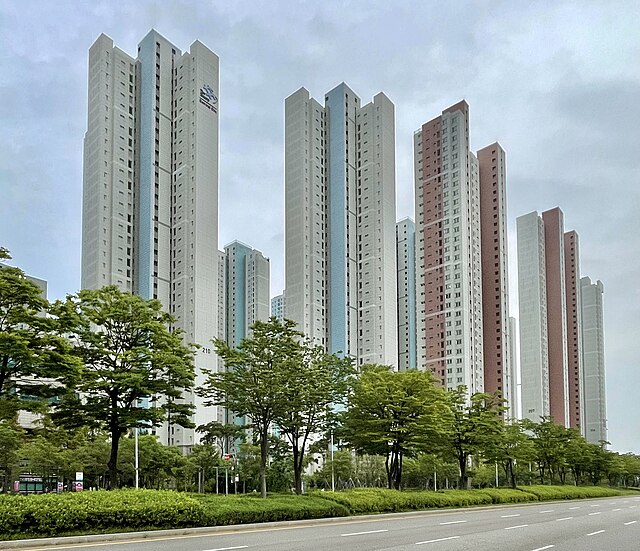Friends are family: redefining homes in South Korea

A series of apartment buildings in Incheon, South Korea.
Jonah Carlson - Most of us have lived with roommates before – but would you consider your roommates family? To bypass strict housing laws in South Korea, a Korean woman named Eun Seo-Ran adopted her close friend as her “daughter,” despite an age gap of only five years. The story, truncated into a “Long Read” published by Al-Jazeera, is a story of friendship that, challenges historic understandings of family, patriarchy, and culture in South Korea. It can also tell us a lot about geopolitical shifts, especially regarding identity, locale, and flows.
Seo-Ran’s experience is not exclusive to just her: it’s part of a growing trend in South Korean society aimed at combatting loneliness. Al-Jazeera notes that one in fifty Koreans live with “de facto family” in the country, but many lack access to privileges allotted only to families recognized by the government. Proposals to change how the government recognizes family units could bring a significant shift to the identity of South Koreans, especially as the country undergoes a significant demographic change that could see most of its inhabitants at retirement age by the middle of the century. New ways in which South Koreans interact with their peers shift not only identity but also locale – the institutions that organize local life. “Family” is a key institution that could be dramatically altered by newly proposed laws and cultural trends. Proponents of the new law believe it could help ease the looming “care crisis” by preventing isolation among older members of the population.
But Seo-Ran’s story doesn’t just enlighten us to cultural shifts in South Korean friendship dynamics. Through highlighting the demographic crisis, the story raises questions about immigration to the country. Han Dong-hoon, who leads the Ministry of Justice in South Korea, recently argued that the country could go “extinct” if it didn’t embrace immigration as a potential solution to the demographic problem. Given that South Korea is a country in which almost the entire population identifies as part of the same ethnic background, increased immigration to the country could significantly shift the country’s future politics and national identity.
Photo source. Vincent van Zeijst, CC BY-SA 4.0, via Wikimedia Commons.

